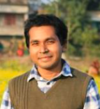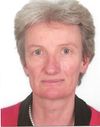Webinar on Sustainable Energy for Household Cooking Needs in Humanitarian Settings
This webinar on sustainable cooking fuels and technologies will begin with a high-level overview of the basics of clean cooking in humanitarian settings. In addition, two case studies will provide a deep dive into work on the ground: The UNHCR will present its experiences from Bangladesh, focusing on the planning and implementation of liquefied petroleum gas (LPG) interventions, as well as demonstrating the benefits of LPG for people's lives. The International Lifeline Fund will give an overview of their different approaches to providing cooking energy to individuals and communities in Uganda. They will share their experiences and lessons learned about what works or what doesn't, and why.
Presentation
Speakers
Vahid Jahangiri, International Lifeline Fund Since joining Lifeline in 2006, Vahid has successfully launched multiple operations to include Lifeline programs in Uganda, Kenya, Tanzania, Burundi, Darfur regions of Sudan, Congo, South Sudan and Haiti. Vahid is a key contributor to the SAFE initiative and served on the Strategic Advisory Committee for UNHCR’s Global SAFE Strategy. Vahid has extensive knowledge in program implementation, fuel and cookstove technologies, design & manufacturing, technical testing and M&E in both refugee and post conflict settings. Additionally, Vahid has performed consultancy work for several UN agencies such as WFP and UNDP, working to evaluate fuel technology programs, designing implementation strategies and formulating country energy strategies throughout Eastern Africa and in Haiti. Vahid received his B.A. in International Management from the University of Baltimore and holds a Masters Degree in International Public Policy from the Johns Hopkins School of Advanced International Studies (SAIS).
Mowdudur Rahman, UNHCR Bangladesh Energy and Environment unit is one of latest addition in UNCHR Cox’s Bazar operation which is tasked to address the challenges of environmental degradation and bring comfort to life with appropriate energy solution where about 1 million refugees are living in 34 camps and Mowdudur Rahman has been affiliated with this unit since its inception. Before joining UNHCR Mowdudur was associated with energy and environment sector in different capacities for more than six years and now has been serving UNHCR for last one and half year. Having in depth knowledge over the industry and local context he is playing a key role in the unit in planning and implementing various projects including LPG distribution, solar mini grid, pressure cooker intervention and others. Mowdudur achieved his Bachelor degree in Electrical Engineering from Bangladesh University of Professionals in 2011. He completed his Master’s in Energy Engineering from Indian Institute of Technology, Bombay under DAAD program. He have achieved training on different technology and intervention from Germany, Malaysia, Indonesia, Sri Lanka and India so far.
Christa Roth, FOODandFUEL Consultant As FOODandFUEL consultant Christa Roth advocates for the sustainable utilisation of solid biomass as food and/or fuel in appropriate end-user devices for different thermal energy needs. Christa points out that ‚clean burning‘ is not stove-property but a result of a cooking energy system where the user, the fuel quality and the ventilation setting matter sometimes more than the stove. She shares her extensive field experience in Food and Biomass Fuel Security e.g. in ‘Stove Camps’ around the world to enhance sustainable access to renewable household energy solutions for the target groups in need. She is the main author of the GIZ-HERA manual microgasification.
Dr Anh Tran, Modern Energy Cooking Services (MECS) Anh is the Humanitarian International Liaison Manager for the MECS programme. A daughter of Vietnamese refugees, she is passionate about empowering refugees and local host communities to access modern energy cooking services and to enable them to thrive and not just survive. Anh has a BEng (Hons) and PhD in Chemical Engineering from the University of Queensland, Australia.
One stream of the MECS programme is the Humanitarian Cooking stream which aims to develop modern cooking solutions for households and institutional cooking in the context of displacement in Africa and Asia through evidence-based research, capacity building and innovate technologies and business delivery models. MECS is a 5-year ~£40M UK Department for International Development (DfID) Aid funded research and innovation programme designed to facilitate a transition away from biomass to modern cooking solutions, such as electricity and LPG. The programme is led by Loughborough University, UK, drawing in global partnerships, including the World Bank’s ESMAP (Energy Sector Management Assistance Program) and Clean Cooking Alliance (CCA, formerly GACC). The MECS Challenge Fund is a competition that funds modern energy solutions. Find out more about the fund and the programme at https://www.mecs.org.uk/
Resources
- Improved cooking portal on energypedia
- GIZ HERA - Cooking Energy Compendium
- The State of Sustainable Household Energy Access in Refugee Settings in Uganda - Survey Findings in Rhino Camp Settlement and Imvepi Settlement, Arua District, West Nile Region (EnDev 2019)
- ILF EcoSmart Pilot Video
- SAFE Broschure
- Clean Cooking Catalogue: A global database of cookstoves, fuels, fuel products, and performance data. It includes information on features and specifications, as well as emissions, efficiency and safety based on laboratory and field-testing. The Catalogue can give practitioners an idea of what of what cooking technologies are available globally for different fuel types, as well as the performance metrics (emissions, efficiency, and safety) of numerous stove and fuel combinations. Questions can be sent to info@cleancookingalliance.org.
- Fuel Analysis, Comparison & Integration Tool (FACIT): FACIT is an Interactive tool designed to inform decisions regarding fuel choices for programs and investors, including an understanding of tradeoffs between fuel options and environmental impacts across the value chain. NOTE: This tool draws on country-specific information that does not include humanitarian data.
- ENERGYCoP: http://energycop.safefuelandenergy.org/web/energycop
























